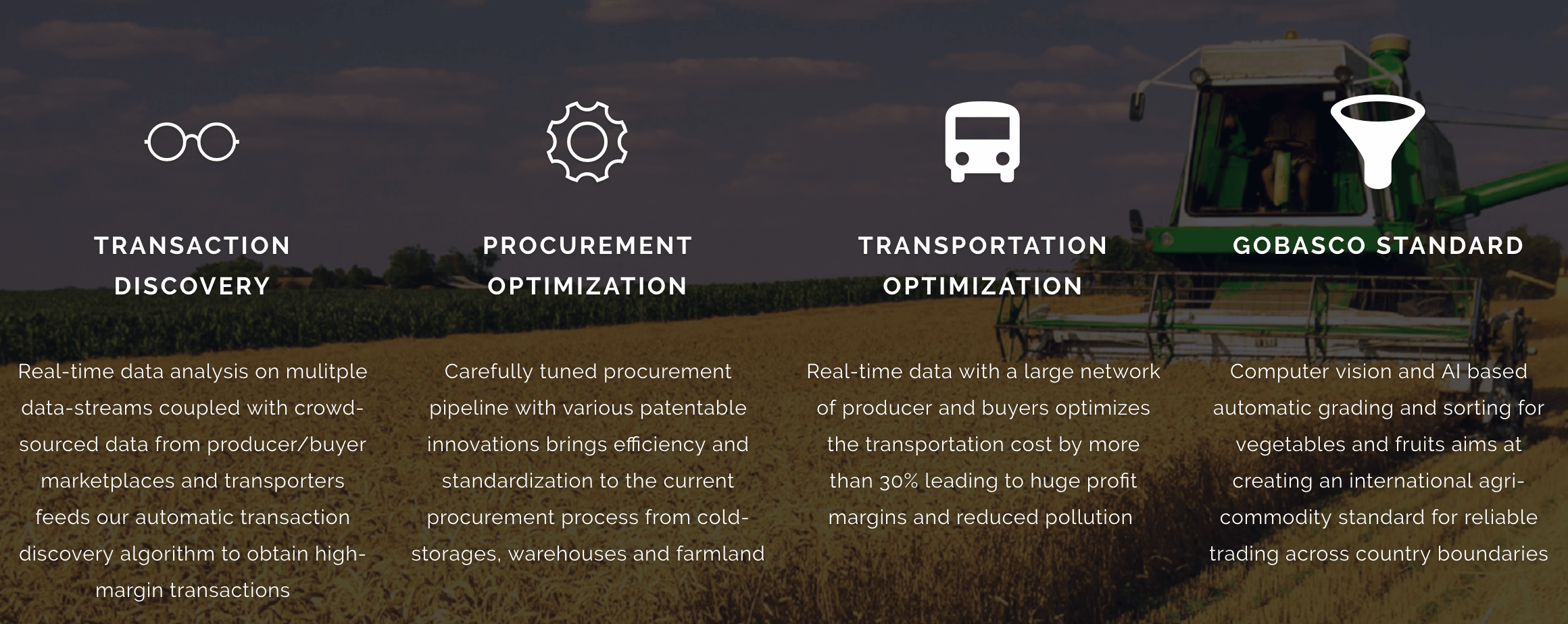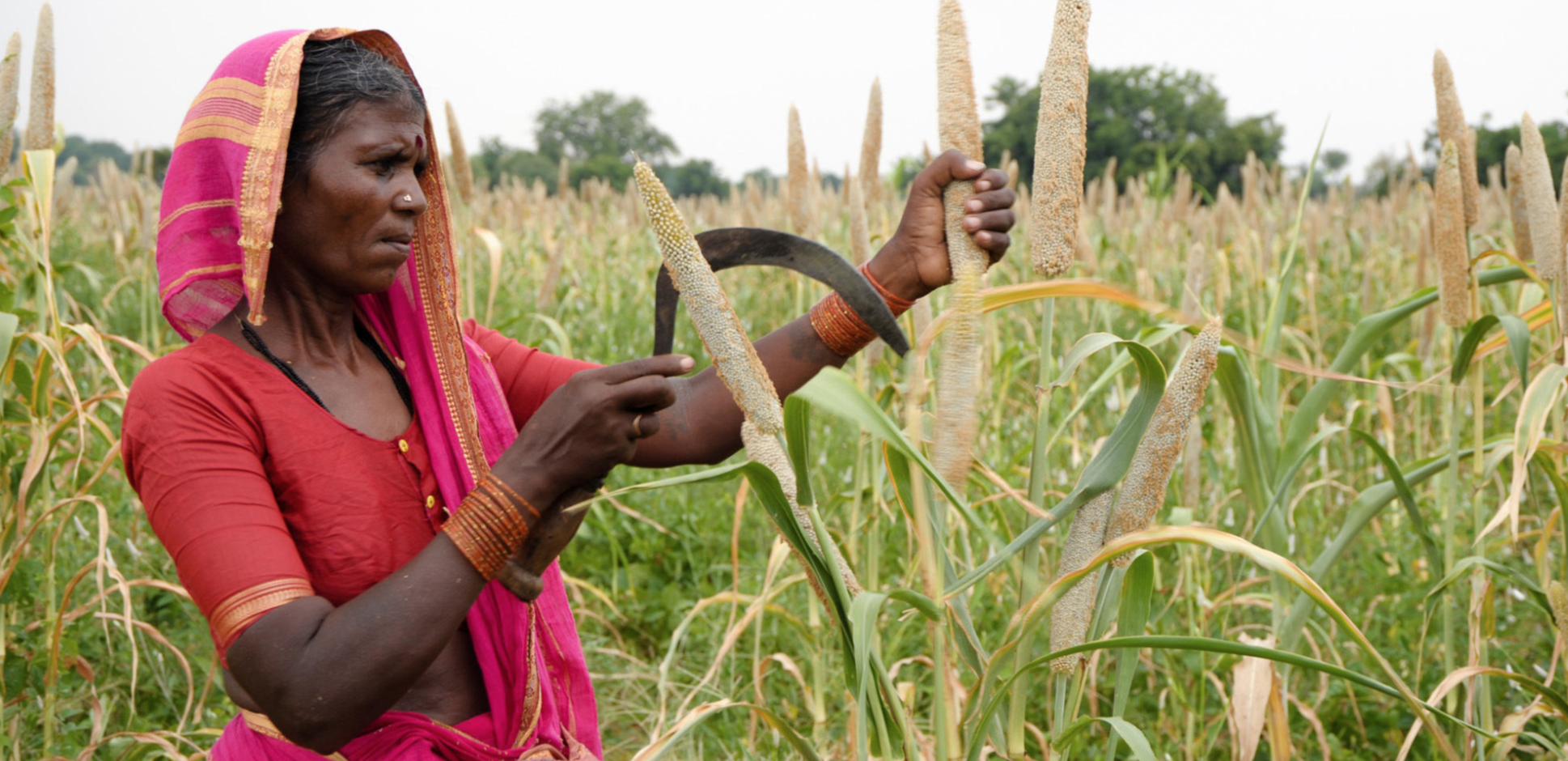Agriculture plays a vital role in India’s economy. Over 58 percent of the rural households depend on agriculture as their principal means of livelihood, according to an IBEF report. Agricultural exports constitute 10 percent of the country’s exports and is the fourth-largest exported principal commodity category in India.
According to the Department of Industrial Policy and Promotion (DIPP), the Indian agricultural services and agricultural machinery sectors have cumulatively attracted Foreign Direct Investment (FDI) equity inflow of about $2.45 billion and the food processing sector has attracted around $7.81 billion during April 2000 to June 2017. With an aim to boost innovation and entrepreneurship in agriculture, the government of India is introducing a new AGRI-UDAAN programme to mentor startups and enable them to connect with potential investors.
On the back of increased FDI and conducive government initiatives, the agriculture sector is increasingly looking at ways to leverage technology for better crop yield. Many technology companies and startups have emerged in the past few years with targeted agri-based solutions that benefit the farmers.
In this article, we explore applications of artificial intelligence (AI) to provide business leaders with an understanding of current and emerging trends, and present representative examples of popular applications.
Based on our research, the most popular applications of AI in Indian agriculture appear to fall into three major categories:
- Crop and Soil Monitoring – Companies are leveraging sensors and various IoT-based technologies to monitor crop and soil health.
- Predictive Agricultural Analytics – Various AI and machine learning tools are being used to predict the optimal time to sow seeds, get alerts on risks from pest attacks, and more.
- Supply Chain Efficiencies– Companies are using real-time data analytics on data-streams coming from multiple sources to build an efficient and smart supply chain.
In the full article below, we’ll explore each category of AI applications in the agricultural industry, along with representative companies and use cases.
Readers with an interest in AgTech may be interested in our other complete articles on agricultural robotics and current agricultural AI applications (mostly focused on the US market).
Crop and Soil Monitoring
CropIn – Using AI to Maximize per-Acre Value
CropIn is a Bengaluru-based startup which claims to be an intuitive, intelligent, and self-evolving system that delivers future-ready farming solutions to the agricultural sector.
To explain the benefits of Cropin’s technology, the company cites a use case with one of the world’s largest producers of potato specialties company based in India which leases plots for farming and has 2500+ plots spread across an area of 5200+ acres. Earlier, they used to record farm data manually, thus creating multiple inconsistent entries.
With CropIn’s ‘smartfarm’ solution, all the plots were geo-tagged to find the actual plot area. The solution helped in remote sensing and weather advisory, scheduling and monitoring farm activities for complete traceability, educating farmers on adoption of right package of practices and inputs, monitoring crop health and harvest estimation, and alerts on pest, diseases etc.
Essentially, CropIn uses technologies such as AI to help clients analyze and interpret data to derive real-time actionable insights on standing crop and projects spanning geographies. Its agri-business intelligence solution called SmartRisk “leverages agri-alternate data and provides risk mitigation and forecasting for effective credit risk assessment and loan recovery assistance.
Proprietary machine learning algorithm built on satellite and weather data is used to give insights at plot and region level,” Krishna Kumar, founder & CEO, Cropin said.
Intello Labs – Using Deep Learning for Image Analysis
Bengaluru-based Intello Labs was started by IIT-Bombay alumnus Milan Sharma in May 2016. The company claims to provides advanced image recognition technology that can recognize objects, faces, flora fauna and tag them in any image.
The company claim to use deep learning algorithms on which a new generation of intelligent applications are being built for applications including agriculture, eCommerce, advertising, manufacturing, and curation.
Small farmers around the world follow traditional farming practices due to lack of access to scientific understanding of crop lifecycle, pests, quality metrics and the latest micro-fertilizers. “Our Image based solutions provide insights on the crops’ health during the growing season and its final harvested quality by click of photograph,” the company states on its website.
Intello Labs claims to provide:
- Agricultural Product Grading: Automated quality analysis of images of food products is an accurate and reliable method for grading fresh products (fruits, grains, vegetables, cotton etc.) characterized by color, size and shape. Their solution reads the image that a farmer has taken on his phone and determines the product quality in real time, without any manual intervention.
- Alerts on Crop Infestation: Farmers can click an image of their crop and use their solution to understand the pests, diseases, and foreign plants (weeds) growing in their farms. The solution uses deep learning and image processing models to identify any crop diseases or pest infestation in the crops. Along with the parameters, it gives recommendations on how that disease can be cured and prevented from increasing further.
The firm has no case studies or visual demos of the technology at this time.
Predictive Agricultural Analytics
Microsoft India – AI-based Sowing App
Determining the right time to sow crops is often one of the biggest challenges for Indian farmers where drought and excess rainfall can be equally serious challenges. Microsoft in collaboration with ICRISAT (International Crops Research Institute for the Semi-Arid Tropics), developed an AI Sowing App that uses machine learning and business intelligence from the Microsoft Cortana Intelligence Suite.
The app sends sowing advisories to participating farmers on the optimal date to sow. “The best part – the farmers don’t need to install any sensors in their fields or incur any capital expenditure. All they need is a feature phone capable of receiving text messages,” a Microsoft India report stated.

To calculate the crop-sowing period, historic climate data (spanning over 30 years from 1986 to 2015) for the specific area in Andhra Pradesh was analyzed using AI. To determine the optimal sowing period, the Moisture Adequacy Index (MAI) was calculated. MAI is the standardized measure used for assessing the degree of adequacy of rainfall and soil moisture to meet the potential water requirement of crops.
Microsoft has also partnered with United Phosphorous (UPL), India’s largest producer of agrochemicals, to create the Pest Risk Prediction App that again leverages AI and machine learning to indicate in advance the risk of pest attack.
Today, these farmers across the Indian states of Andhra Pradesh and Karnataka wait to get a text message before sowing the seeds. As per the report cited above, in a few dozen villages in Telangana, Maharashtra, and Madhya Pradesh, farmers receive automated voice calls alerting them whether their crops are at risk of a pest attack based on weather conditions and stage of the crop. No specific numbers on the results were reported.
Agri Supply Chain
Gobasco — The Intelligent Agri Supply Chain
Based in the North Indian state of Uttar Pradesh, Gobasco has the advantage of a high-tech team. Vedant Katyar, co-founder & CEO of the company is an engineering graduate from premier Indian technology institute BITS Pilani while CTO Abhishek Sharma is a PhD in Artificial Intelligence from the University of Maryland in the US.

Gobasco claims to employ real-time data analytics on data-streams coming from multiple sources across the country aided with AI-optimized automated pipelines to dramatically increase the efficiency of the current agri supply chain. “Our data-driven online agri-marketplace affords the best prices for both the producers and buyers at their fingertips.
Through our carefully engineered tech-driven pipeline, designed for the Indian agri supply-chain, we operate at a higher profit margin than the traditional companies,” the company stated in its website.
Gobasco uses AI and related technologies in the various stages of the agri supply chain to ensure it is efficient and fast. Some of them are listed below:
- Transition Discovery: Real-time data analysis on multiple data-streams along with crowd-sourced data from producer/buyer marketplaces and transporters feeds their automatic transaction discovery algorithm to obtain high-margin transactions.
- Quality Maintenance: Computer vision and AI-based automatic grading and sorting is done for vegetables and fruits for creating an international agri-commodity standard for reliable trading across country boundaries.
- Credit Risk Management: Crowd-sourced data, algorithms and analytics overcome the credit default problem, the most challenging problem of current supply-chain, to ensure a very low risk operation.
- Agri-Mapping: Deep-learning based satellite image analysis and crowd-sourced information fusion obtains a real-time agri map of commodities at a resolution of 1 sq-km.
Other Use Cases
In this section, we have featured some of those companies that claim to use AI in agriculture to some extent but Emerj hasn’t been able to independently verify the use cases.
Editor’s note: We frankly don’t have evidence to support the claims of AI use at either of the below companies. Without PhD staff or current case-studies, we are unable to establish confidence in AI’s place in either of the firms.
Our intention in this article was to find all that we could in terms of AI in the Indian agricultural sector (a sector in its infancy), and these are simply companies that make claim to AI, but about which we have skepticism. More research will be done in this sector in the future, and we hope that more Indian ag-tech firms will have robust case studies.
Gramophone (Agstack Technologies) – Image Recognition for Soil Science
Based in the Indian state of Madhya Pradesh, Gramophone claims to leverage the power of image recognition and soil science to help farmers with timely information, technology, and right kind of inputs to achieve better yields.
“Our technology platform uses AI and machine learning to predict pest and disease, forecast commodity prices for better price realizations and recommends products to farmers,” Tauseef Khan, co-founder of the company, told Emerj.
Nishant Vats, co-founder of Gramophone, added:
“Image recognition technology in tandem with our proprietary database gives diagnosis of problems. We use temperature, humidity and pathology/entomology data to give accurate advisory to the farmers. Our primary focus is to digitize agriculture science and convert it into actionable information for the farmers to provide personalized farm management solution which would guide farmers across the cropping cycle.”
Khan says that the proprietary database developed in-house by them is a result of two years of ground work. “We are a team of agriculture engineers and technology experts from IITs. Our understanding of the ecosystem is the key.”
Gramophone claims to reach out to more than 100,000 farmers in the state with a productivity improvement of more than 50 percent in the three cropping cycles that they have been associated with. Their goal this year is to reach a million farmers and localize our platform in few more languages.
Jivabhumi – The “Smart” Agriculture Marketplace
There is often a mismatch in supply and demand of agricultural produce. While on one side farmers are unable to find suitable markets for their produce, on the other hand, consumers are devoid of safe and affordable food. Jivabhumi’s ‘Foodprint’ is a produce aggregation and food traceability solution which aggregates the farm produce, provides e-marketplace services and implements traceability. It claims to use technologies such as blockchain to capture the information of the produce at various levels in the supply chain.
Srivatsa TS, co-founder of Jivabhumi told Emerj:
“The platform connects institutional buyers directly with farmers thus providing wider market access to the farmers and ensuring fair-trade. Buyers get to discover the produce, price and be able to procure directly from the producers while being sure about the transparency of the transaction and traceability of the produce”
According to Srivatsa, the platform captures comprehensive information about the commodities (growing information, pre- and post-harvest, transportation, warehousing etc) which “will be pushed through blockchain to generate a digital identity for a physical commodity and eventually build traceability to prove provenance and movement of commodities from farm to table. On the other hand, AI engine will leverage the comprehensive aggregation of data at various points in supply chain to proactively advice farmers on sowing, pest control, harvesting etc.”
Concluding Thoughts
Given the huge potential of agriculture in India, it’s imperative that technology is used to the maximum so that both farmers and consumers can make the most of it. With recent advancements in technology coupled with conducive government policies, we have seen many agtech startups emerge in the country which is a great starting point for the penetration of advanced technologies like AI in agriculture.
AI comes as a great boon to the agricultural sector which is heavily dependent on climatic conditions which are often unpredictable. Throughout the article, we have seen instances of how companies are using sensors for crop and soil monitoring, as well as AI and machine learning tools for predictive analytics. In case of Jivabhumi, we have seen the use of blockchain to create a transparent online marketplace to buy and sell crops under one platform. More and more use cases of AI in agriculture is likely to show up in the near future because of the immense value it can add.
Header image credit: Maine Public















